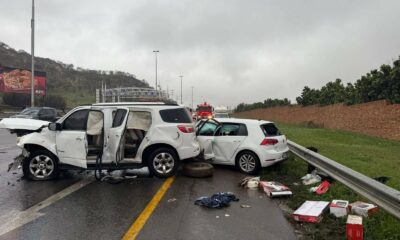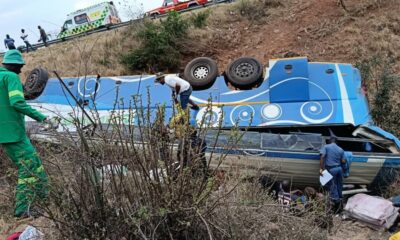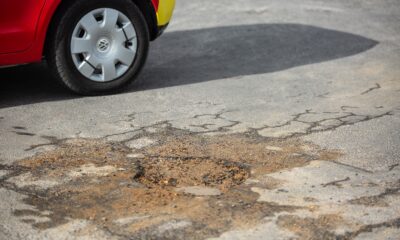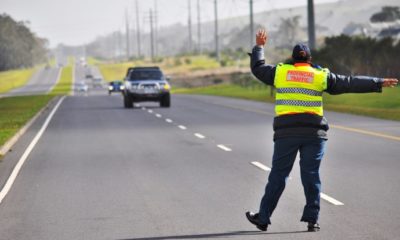Business
Speeding, Fines, and the Truth About Tolerance: What Every SA Driver Needs to Know in 2025

The Real Story Behind SA’s Speed Limits: It’s Not What You Think
If you’ve ever driven in South Africa and wondered whether creeping a few kilometres over the limit will get you fined, here’s the deal: the system does have some built-in leniency. But don’t get too comfortable. A new national rollout is coming, and it’s changing how South Africa deals with speeding.
Thanks to the Aarto (Administrative Adjudication of Road Traffic Offences) system, there’s currently a grace allowance of up to 10 km/h over the posted speed limit. That’s not just generous guesswork; it’s a practical nod to real-world variables like speedometer inaccuracies. But this tolerance doesn’t apply everywhere. Speed-over-distance traps? No such luck.
How the Fines Work Now
South African road law has quietly built in a structured approach to fines based on how far over the limit you’re travelling. Here’s a quick breakdown of what to expect if you push it:
-
11–15 km/h over: R250 fine
-
16–20 km/h over: R500 fine
-
21–25 km/h over: R750 fine
-
26–30 km/h over: R1,000 fine
-
31–35 km/h over: R1,250 fine
-
36–40 km/h over: R1,500 fine
-
More than 40 km/h? You’ll be arrested and must appear in court.
So technically, you won’t face a fine if you’re doing 10 km/h or less over the limit. But speed cameras and enforcement officers aren’t obligated to ignore it either. It’s a tolerance, not a guarantee.
What’s Changing in 2025?
Here’s where things get serious. Starting December 2025, Aarto will begin a phased national rollout across 69 municipalities. The rest of the country has until April 2026 to catch up.
That means the system will soon be active almost everywhere. However, the much-debated demerit point system is being held off until September 2026. Once it goes live, repeated offences could lead to suspended or even cancelled licences.
For now, you won’t rack up points for speeding. But those fines? They’re real and rising. And once points kick in, repeat offenders will need to think twice.
Are Lower Speed Limits Coming Too?
Back in 2022, the Road Traffic Management Corporation (RTMC) floated a plan to lower all speed limits in South Africa by 10 km/h. It would have dropped:
-
Highways to 110 km/h
-
Secondary roads to 90 km/h
-
Urban areas to 50 km/h
But this proposal was met with serious pushback. The Automobile Association (AA) and road safety experts alike argued that speed limits are not the root cause of road carnage. Infrastructure, law enforcement, corruption, and drunk driving, they say, play a much bigger role.
Are We Focusing on the Wrong Problem?
There’s growing frustration from road users and experts who believe the country’s obsession with speed limits is a distraction. Rob Handfield-Jones, a well-known name in driving education, pointed out that even when speeding enforcement was at its lowest in 1998, South Africa had its safest year on the roads.
In 1998, just over 1.4 million fines were issued. Today, that figure is nearly 12 million annually, yet road fatalities have skyrocketed. The 2024 and 2025 festive season stats told the same story: intoxicated driving is rampant, roads are poorly maintained, and many drivers ignore laws outright.
The logic is simple. Speeding fines are easy to issue and highly profitable for the state. But they may be missing the point.
The Bottom Line for Drivers
You’ve got a bit of wiggle room when it comes to speed, but it’s not a free pass. With Aarto expanding across South Africa and the demerit system looming on the horizon, now’s the time to clean up your driving record.
Local drivers are already taking to social media to voice mixed feelings. Some are relieved about the 10 km/h tolerance, calling it “common sense driving.” Others are worried that these changes are just more red tape without solving the core safety issues on our roads.
Whatever your take, one thing’s clear. South Africa’s road rules are evolving, and drivers need to keep up or risk paying the price.
Also read: Buying Your First Car in South Africa: What You Need to Know Before Spending a Cent
Follow Joburg ETC on Facebook, Twitter, TikT
For more News in Johannesburg, visit joburgetc.com
Source: MyBroadband
Featured Image: AutoTrader























